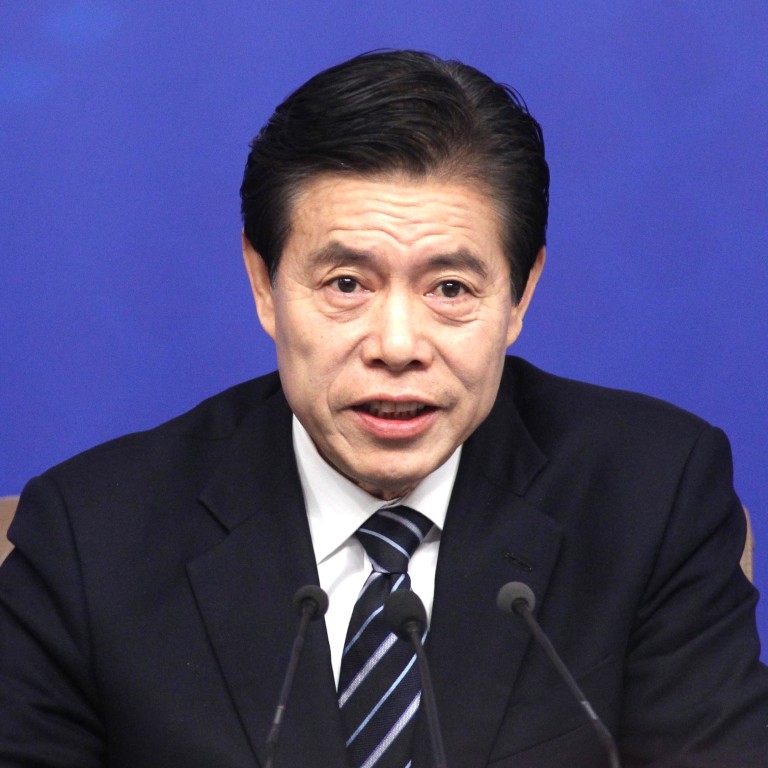
Beijing says it will make it easier for foreign firms to invest in China, reduce restrictions
- Full foreign ownership of companies will be allowed in more areas of the economy and it will cut number of industries where foreign investment is limited or barred
- Commerce minister also says FDI into the country rose 3 per cent last year
China will reduce restrictions on foreign investment and address difficulties facing foreign companies investing in the country, the commerce minister said, according to a transcript of an interview he gave to state media.
Commerce Minister Zhong Shan said China would allow full foreign ownership of companies in more areas of the economy and would reduce the number of industries in which foreign investment was restricted or barred, according to the transcript posted on the commerce ministry website on Sunday.
The comments appeared to be largely reiterations of past pledges by Chinese officials for further market opening.
Foreign direct investment (FDI) into China rose by 3 per cent year-on-year to US$135 billion in 2018, Zhong said in the interview on Friday, according to Xinhua.
That would mark a slowdown from growth rates of 7.9 per cent in 2017 and 4.1 per cent in 2016.
But Zhong said China had maintained stable FDI growth “against a gloomy global climate”, noting that total FDI around the world had slumped by 41 per cent in the first half of last year.
China’s goods consumption is expected to gain 9.1 per cent from a year ago in 2018 to 38 trillion yuan (US$5.62 trillion), Zhong said.
Chinese investors ‘facing severe situation in the US’
He added that the ministry would further stimulate domestic consumption this year, with measures to promote urban consumption upgrades, tap into the potential in rural areas, foster modern supply chains, and boost services consumption.
“The Chinese market has huge potential and sound prospects,” Zhong said. “China is steadily marching towards the largest country of goods consumption.”
China has been pushing to broaden opportunities for private firms and foreign investors to stimulate an economy that is slowing on the back of weakening domestic demand and a trade war with the United States.
Trade war drives down China’s current account forcing new reliance on foreign investment
Zhong said “properly handling” trade frictions with the United States was a major task for the ministry in 2019.
The ministry would “conscientiously implement” the consensus to work towards a resolution of the trade row reached by Chinese President Xi Jinping and US counterpart Donald Trump in Argentina late last year, he added.

The two sides held three days of trade talks at a vice-ministerial level in Beijing last week.
He said other priorities of the commerce ministry this year included holding the second import expo, and pushing forward pilot free-trade zones and the Hainan free-trade port.
Zhong said the commerce ministry would push for the introduction of a foreign investment law as soon as possible, improve the handling of complaints from foreign firms, and encourage foreign investment in manufacturing and hi-tech.
The ministry would also encourage foreigners to invest in central and western China, he said.

